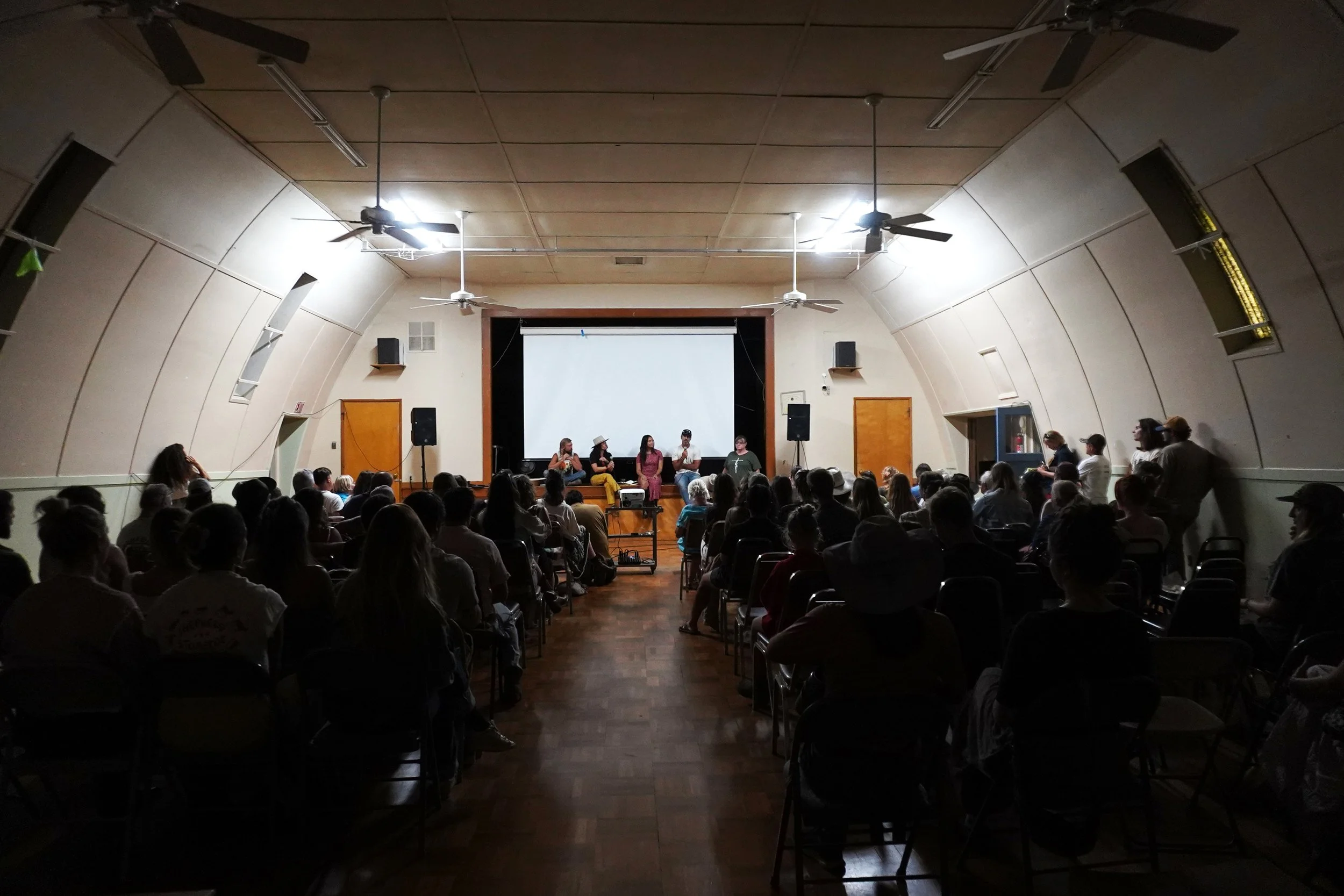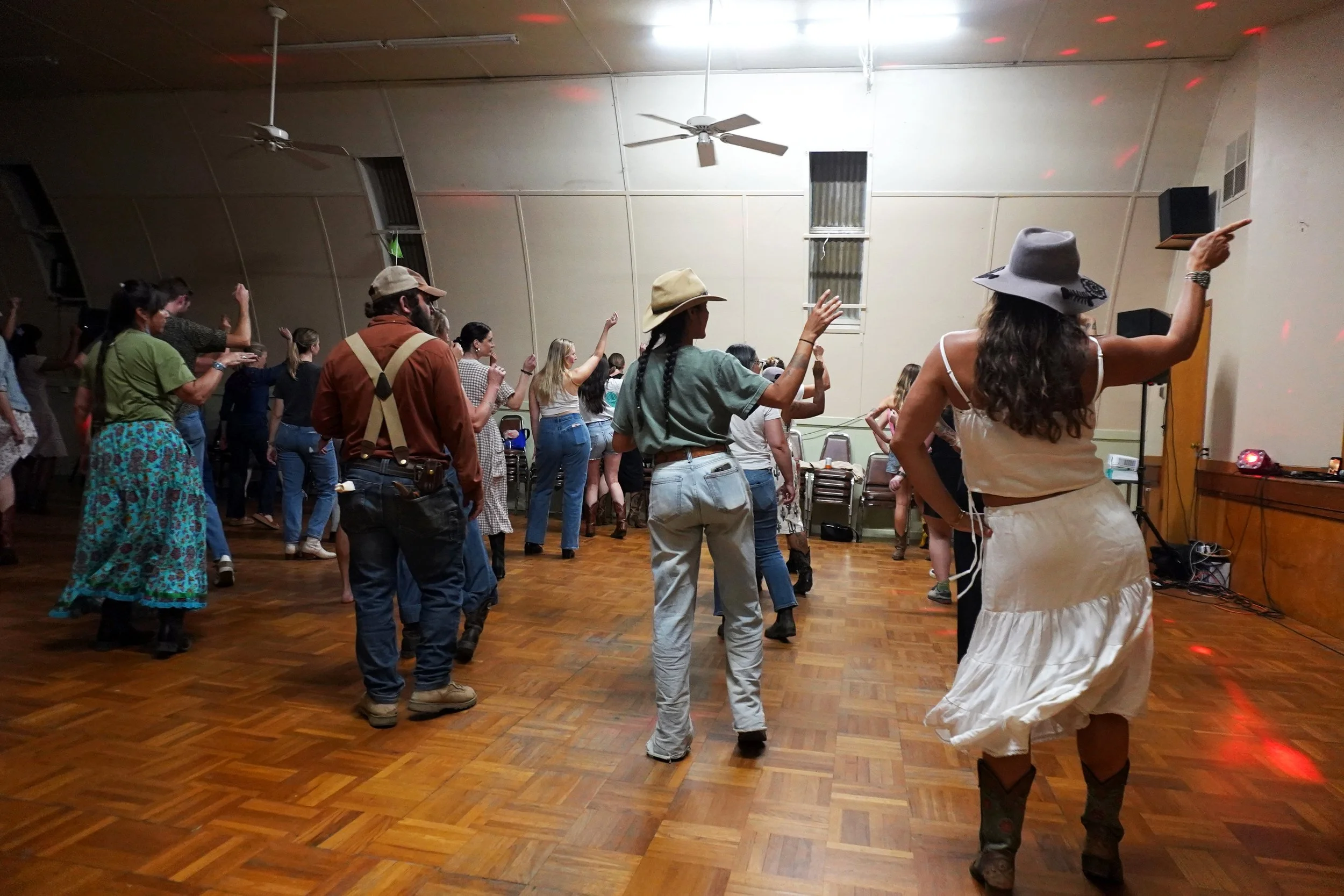We Speak as One
Reviving our Shared Story of Stewardship
photo by Tractor
Ojai, CA – July 31, 2025
On a warm summer evening in Ojai, neighbors and new friends gathered at the historic Simoore Grange Hall to celebrate the latest launch of Mad Agriculture Journal Issue 13 — a publication that brings together farmers, ranchers, artists, and thinkers to explore the future of food, land, and culture.
This issue featured “Be Like a Sheep,” an essay by our very own Program Manager Diane Anastasio, with an introduction by Founder Cole Bush. Their words set the tone for the night, reminding us of the deep lessons shepherding offers about care, community, and resilience. [Read full article here → LINK]
The evening wove together land, sheep, fiber, culture, music, and community in ways that felt both timeless and urgently needed. The night was a sensory feast: the smoky aroma of BBQ mingled with the delicate flavors of Ojai Valley-raised lamb, prepared by the team from Rory’s Place in collaboration with Boekhouse Hearth and Husbandry. Guests sipped Tractor Beverages, tapped their boots to live music and line dancing, and shared tables with ranchers, farmers, graziers, artists, activists, and curious locals. Between films, music, and the rhythm of conversation, a central theme emerged — home.
For Grazing School of the West (GSW), “home” means more than a place; it’s the relationships, care, and shared values that sustain us. It’s the recognition that our work — raising animals on healthy soils, bridging cultural divides, and nurturing local food systems — is rooted in community. As GSW Program Manager Diane Anastasio and Founder Cole Bush wrote in this issue of MadAg, shepherding is as much about mutual care as it is about tending a flock.
Why the Grange Matters
Hosting this gathering at the Simoore Grange Hall added layers of meaning. The Grange, founded in 1867 as the National Grange of the Order of Patrons of Husbandry, has been a cornerstone of rural community life for more than 150 years. Born from a vision to unite farmers across regions and political divides, the Grange championed cooperative ventures, advocated for fair agricultural policies, and created spaces where rural families could learn, celebrate, and organize.
The Ojai Grange itself thrived in the 1940s before quieting in recent decades — and even more so during the pandemic. Its revival as the Simoore Grange Hall is part of a larger story: reclaiming rural gathering places as hubs for creativity, culture, and collaboration. Watching short films Diane’s and Cole’s journey under a round metal roof, you could feel the continuity — the same spirit of mutual support that animated the original Grange still pulses here.
Photo by Tractor
Photo by Tractor
A Culture of Care
Events like this one remind us why cultivating joy, art, and connection is essential to resilience. In a world where climate change and cultural divides can feel overwhelming, celebrating as a community becomes an act of resistance. The Ojai Valley came together not just to eat, drink, and dance, but to listen — to the land, to each other, and to the many voices that make up our shared story.
As Grazing School of the West, we are committed to nurturing the next generation to live into the legacy of resilience and care that has sustained our communities for generations. Each guest left with a copy of the new Mad Agriculture Journal, but perhaps the greater takeaway was a renewed sense of belonging — of being part of something greater.
As we continue the work of land stewardship, animal care, and community building, we carry forward the lesson of this magical evening: that resilience is built in the spaces where we gather, break bread, share our stories, and imagine the future together.








